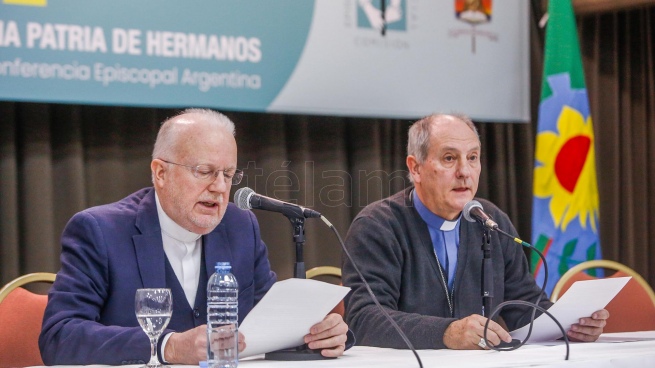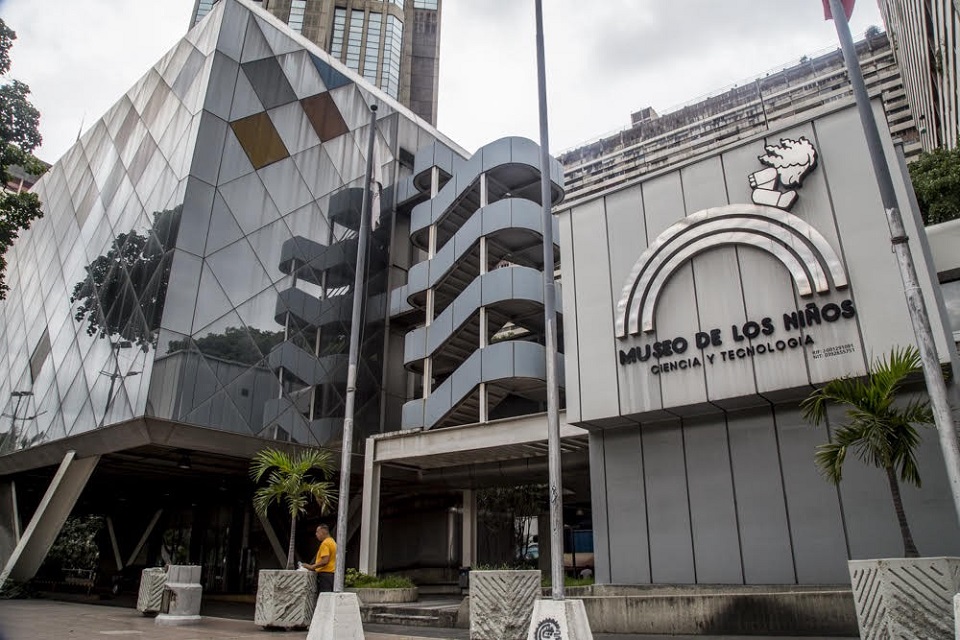The president of the Commission for Social Pastoral Care of the Argentine Episcopal Conference (CEA), Monsignor Jorge Lugones, warned of the need to “rebuild trust in our country and generate a political, social and business agreement to deepen income redistribution policies to close the social gap.
In the framework of closure of the Social Week 2022 meeting, Lugones advocated the implementation of “public policies that come out of short-termism”warning that “more responsibility and a critical spirit are needed in the face of the media power that, responding to sectoral economic interests, denies the intelligent discussion of ideas and discernment of reality.”
“We are facing the enormous challenge of creating sources of work with a living wage that sustains their purchasing power“, he said and reiterated that “Social plans are necessary at this juncture, until the consolidation of sustainable popular economy models“.
In any case, he clarified that it is “essential” to apply a “true comprehensive human development plan that includes a repopulation project for our country to address the dire need for land, shelter and work that a large part of our people have.”

the encounter
When reading the conclusions of the religious meeting, Lugones maintained that “the great computer of human life and happiness is decent workunderstanding that the possibility of accessing it is not an individual problem, but rather the consequence of a model that must put production before speculation, distribution before concentration and hoarding, the common good before sector profitability” .
The head of the Episcopal Commission for Social Pastoral recalled that “the employer is a fundamental figure in any good economy”, although at the same time “the true employer is the one who knows his workers because he works alongside them and with them”.
Over the last three days, businessmen and industrialists of various scales made presentations and the conclusion was reached that “good quality employment cannot be generated without an active presence of the State in support of companies and SMEs, generating a public/private articulation that generates stability in the rules”, underlined the prelate.
“After this meeting we have listened with concern to the data on economic inequality in our country, that the excessive concentration of wealth discourages national employment and stimulates savings outside the country, foreign consumption and the flight of foreign currency,” said Monsignor Lugones and warned Even though “there is growth in economic activity and employment, there are still brothers in a situation of poverty”.
The conclusions
“Among the conclusions we have reached is that it is necessary to defend the democratic systembearing in mind that the administration of life in society is not only the task of the political power, but also of the Judicial, of the economic power and that at the same time it is the task of all to take care of the sovereign will of the people“.
Lugones expressed: “As pastors entrusted to us with this task of illuminating the work of the social ministry of the episcopate, we understand that we must join all efforts to build agreements that guarantee decent work and integration for all the inhabitants of our country”.
After two years of virtuality, the Social Pastoral met in person for three days at the 13 de Julio hotel in Mar del Plata, under the motto “Integration and work for a homeland of brothers”, where different ecclesiastical authorities, politicians and trade unionists with a strong call for dialogue, human integration and the creation of decent employment.
Moreno said that “we have two extraordinary incomes: the energy and food that the world asks for”
The former Secretary of Internal Trade of the Nation Guillermo Moreno said this Sunday, in the deliberations of the Social Week of the Catholic Church, that “It is the first time in 70 years that the world is talking about food and energy, two extraordinary incomes that Argentina has, which is the time for this country.”
On the last day of the traditional conclave of the Social Pastoral Commission that took place in Mar del Plata, the former official expressed that “it is time for Argentina, if we are in a position to build the administration of public affairs, understanding the common good of what is happening in the world”.
“We have debts and they are to be honored and there is no doubt about that, but not with the thirst and hunger of the Argentine people, but with those who have extraordinary income,” he said later, referring to the foreign debt.
Along these lines, he maintained: “Argentina has an extraordinary opportunity because we have extraordinary income, where the world today for the first time in 70 years is telling us that what we have at home is what works: food and energy.”
“It is the first time that the world has not blown us against it, it is the first time that the world is talking about food and energy, two extraordinary incomes that Argentina has, with which it is time for Argentina,” Moreno insisted.
He added that “This is very simple: we put order back in the economy; the order in the economy is primary fiscal surplus, we collect more than we spend and (we have) the fundamental contribution of extraordinary income”.
“We have to sell to the world more than what we buy; there is no other possibility because we are in debt. If we do this, we will generate profitability from the microenterprise, from the urban informal sector to the economic groups,” Moreno added.
Then he asked “what are the characteristics of an economic policy that builds jobs” and was answered: “We build jobs, but we had a primary fiscal surplus. We spent less than we collected and we have to return to that surplus; it is impossible to manage Argentina no primary fiscal surplus”.

















